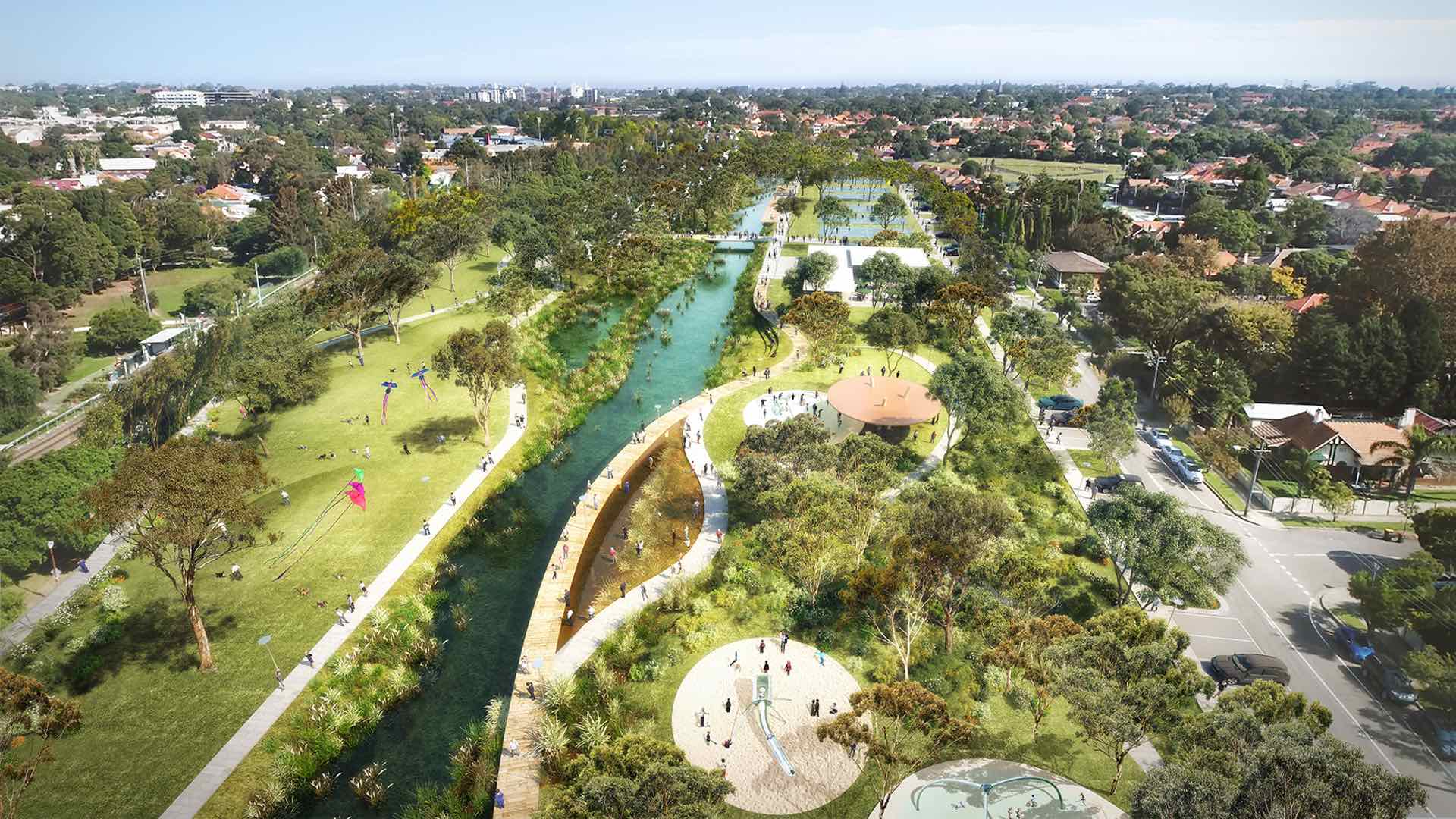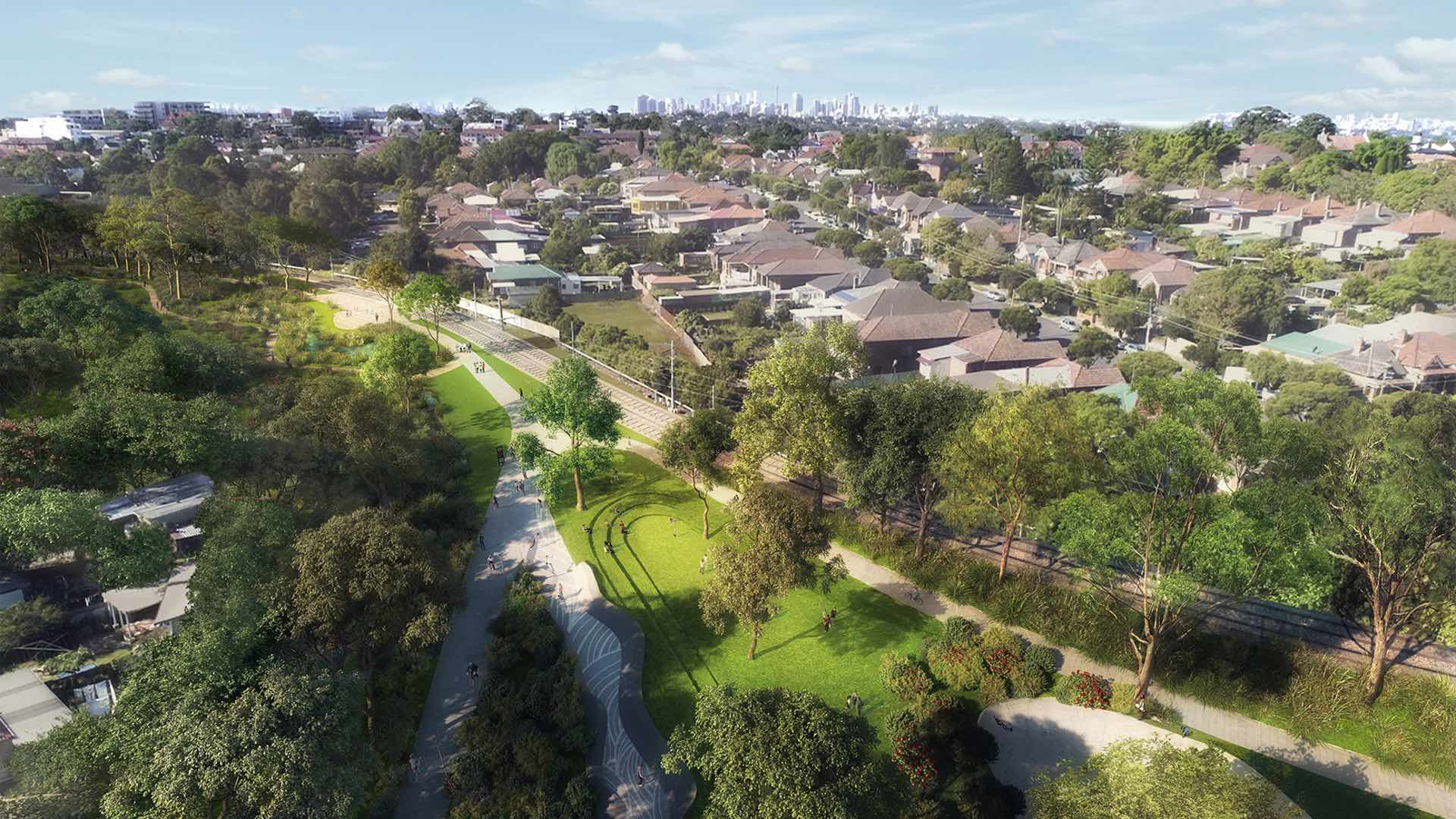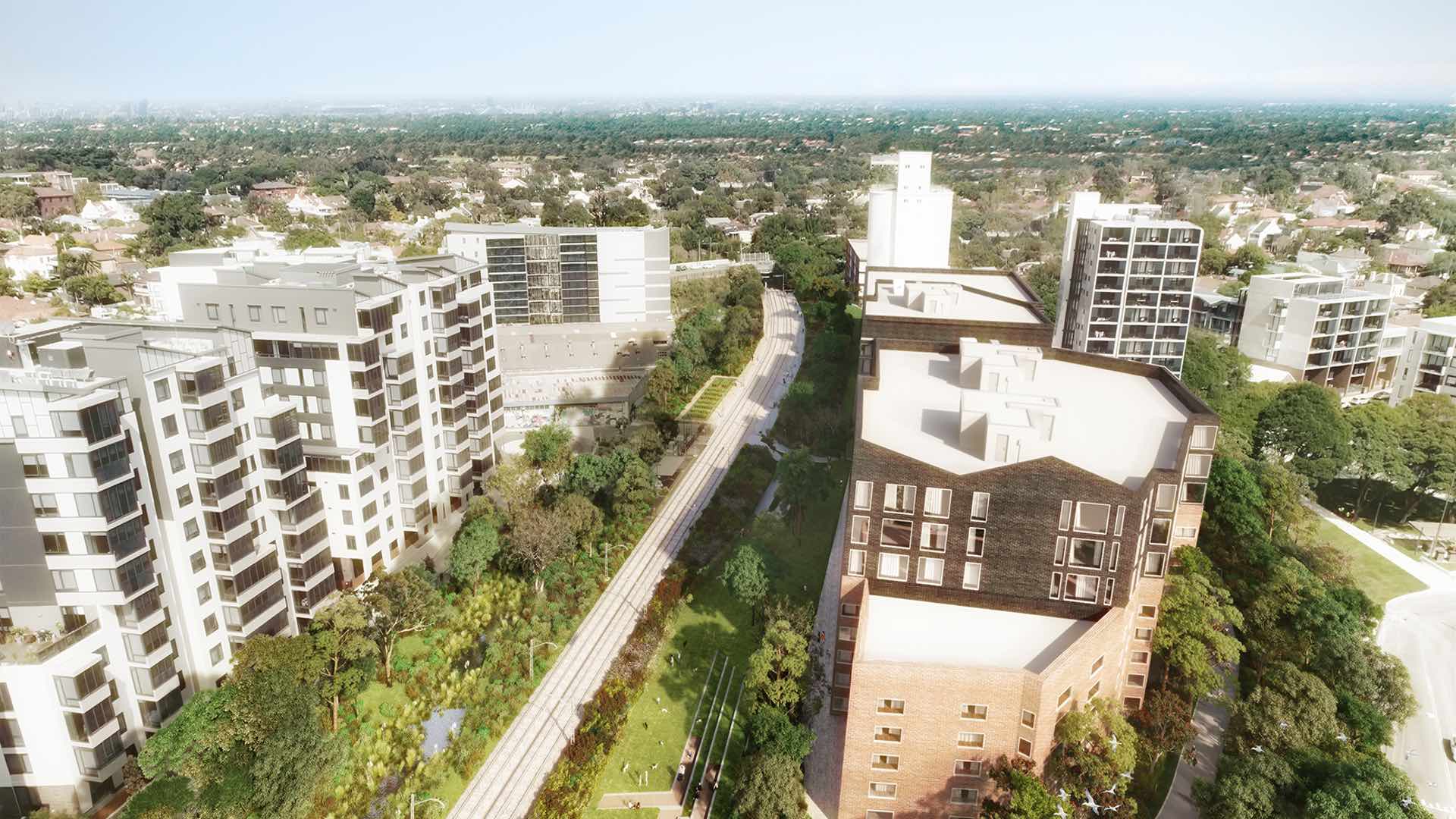Inner West Sydney's Car-Free GreenWay Is One Step Closer to Becoming a Reality
Construction on the five-kilometre bike and pedestrian corridor is expected to begin next year.
UPDATE: AUGUST 22, 2018 — The final master plan for the GreenWay has been officially adopted by the Inner West Council, which means that design development for the missing links along the path can begin. A development application will be lodged for the 'central links' later this month, and consultation with the community on the 'southern links' will begin in September.

The inner west's much-talked-about, long-dreamed-about GreenWay is one step closer to becoming a reality with the draft master plan for the project revealed last week.
The car-free pedestrian, cycling and biodiversity corridor, which has been in the works for upward of ten years, will be comparable to other world-class GreenWays in the US, including New York's High Line and the Chicago 606.
Inner West Mayor Darcy Byrne described the 5.8-kilometre GreenWay, which'll run from Cooks River in Earlwood to Iron Cove in Leichhardt, following the light rail's route, as "an ecological and active transport corridor that facilitates a range of passive and active recreation opportunities and incorporates local places for culture and art."
It's set to be a big win for cyclists, connecting popular trails the Bay Run and Cooks River Cycleway, and boasting a mix of parkland, sporting facilities and cultural sites.
Key plans for the project include a series of new or improved open public spaces for the light rail corridor in Dulwich Hill and Lewisham West, upgraded road crossings, a new bridge over the Cooks River, and a new accessible shared pathway running the entire length of the Green Way.
Heading up the ambitious project is Australian design firm McGregor Coxall, who also designed The Calyx in Sydney's Royal Botanic Gardens.
The bulk of the project's work will happen between 2019 and 2022, with additional works implemented over the next 15 years, depending on funding. The total project is expected to cost $57 million.
Images: McGregor Coxall







